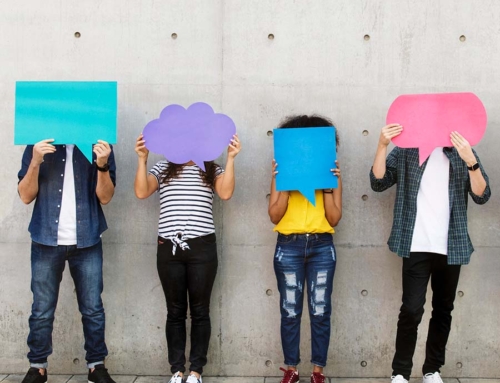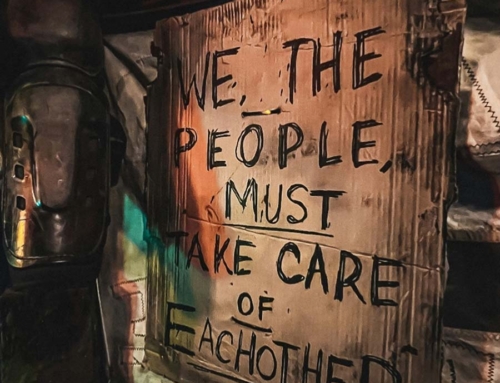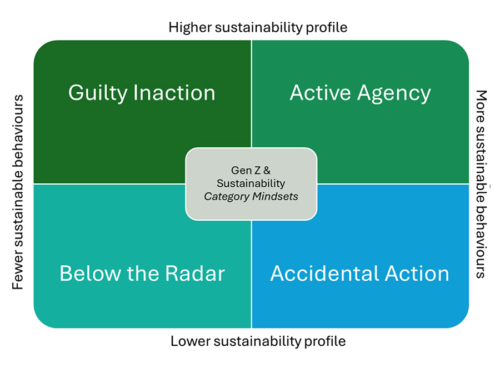
Marketeers understand the importance of Gen Z (born 1997-2013) as the consumers of tomorrow, so in our most recent study we set out to get to know this generation a little better and particularly their views on sustainable consumption.
One hot topic that surfaced in our conversations with our Gen Z research participants was the increasing pressure on their 'socials' to boycott specific brands.
Social issues & cancel culture
Many of our Gen Z participants had responded both to these lists and other influences by collectively boycotting brands across an array of sectors from fast food to fashion and retail.
These boycotts were particularly driven by high levels of engagement with the social aspects of sustainability such as treatment of workers or human rights record, less so for environmental or climate related convictions (LINK Ep 2: social sustainability).
Essentially they were more forgiving of environmental missteps than social ones. They felt that companies may inadvertently trip up over aspects of their production process, whereas a human impact is interpreted as more deliberate and therefore cuts deeper and is less easily forgiven.
Contracts manager, Emma, aged 22, explained her thinking to us:
"I think slip ups can happen, like you know … they obviously don't really want to spill all their oil into the ocean. It's happened. They have to do a clean-up. It's not ideal, obviously … . But if they've actively gone out of their way, when they're a profitable company, to pay people less than minimum wage, (which is already awful) – it's more deliberate. It's like, just, you've got absolutely no moral compass to it. So for me, it's just like the worst.'
Getting political or taking a social stance
Championing or speaking out on causes that align with a brand's values generated a lot of brand 'credit' from Gen Z. Some admired brands which take bold positions as long as they are expressed with authenticity and conviction.
23-year old support worker, Phoebe, described her outlook with this example:
"Like Marc Jacobs – one of their perfumes had a campaign where there was this big poster, and it was a man that was pregnant, and it was like a trans couple. And I remember seeing specifically a white, middle-aged male look at it go 'euwh – why is that up in here''? And I thought it's really brave of Marc Jacobs, actually, because there's quite a big chunk of people that will look at it like negatively – Obviously, it's polarising …. but I feel like it was a brave move, [and] I kind of agree with that."
Our Gen Z audience was also full of praise for brands like Tony's Chocolonely, Tala clothing, Tropic skincare and the human-centred Fairtrade initiative which they considered to be ethical and purpose-led.
In contrast, our Gen Z participants had little patience for brands making bold claims that they perceived to be at odds with the core business itself, or its stated values. For example, hospitality worker Mark, aged 23, urged brands not to take a disingenuous position just to provoke a reaction:
'just stay in your lane – don't jump on something that you know is gonna get you clicks or views or like, that's such a reach to do that'
Clearly the stakes are very high when you play with politics and brands that adopt this path need to understand the risks of alienating audiences with polar views, although some argue that raising attention in itself is a good thing.
Gen Z – the power of cancel consumption
Limited by the constraints of first salaries and a cost of living crisis, our participants often cannot afford often more expensive sustainable products and services. Instead, they withhold from purchases to wield influence on the topics that really matter to them. Here, 25 year old construction worker Joe, explains how he perceives the collective power of buyers:
Boycotting companies like Starbucks is the most effective way to bring about change. So they see a drop in sales, drop in customers, then they [might] go, right – we obviously do need to do something'
This is supported by a whitepaper from AI Platform FactMata who report that 2018 64% of people would boycott a brand based on widespread, negative information they see online, regardless of the facts. That number is up to over 80% as of 2021, highlighting the growing scale of the problem brands face in cancel culture and the risk misinformation and harmful content poses to brand reputation.
Although currently cash-strapped, it's interesting to note that our participants did expect that, as their disposable income increases, they will actively make more positive choices, choosing more sustainable brands and products which are currently out of reach financially.
How can brands respond?
Brands should not shy away from having clarity of purpose and clearly expressed values – Gen Z will certainly give you credit for that. Brands which have a clear stance on their values and authentically demonstrate them can forge enduring connections with young people. In turn, these brands will be better placed to weather any social, political or ethical storms ahead.
And in the longer term, as Gen Z buying power increases, brands which have built positive values and behaviours around sustainable consumption are more likely to be chosen by this rising generation of conscious consumers.
Want to know more about our Gen Z – Connected Lives research series? Get in touch with us at info@brand-legacy.com






